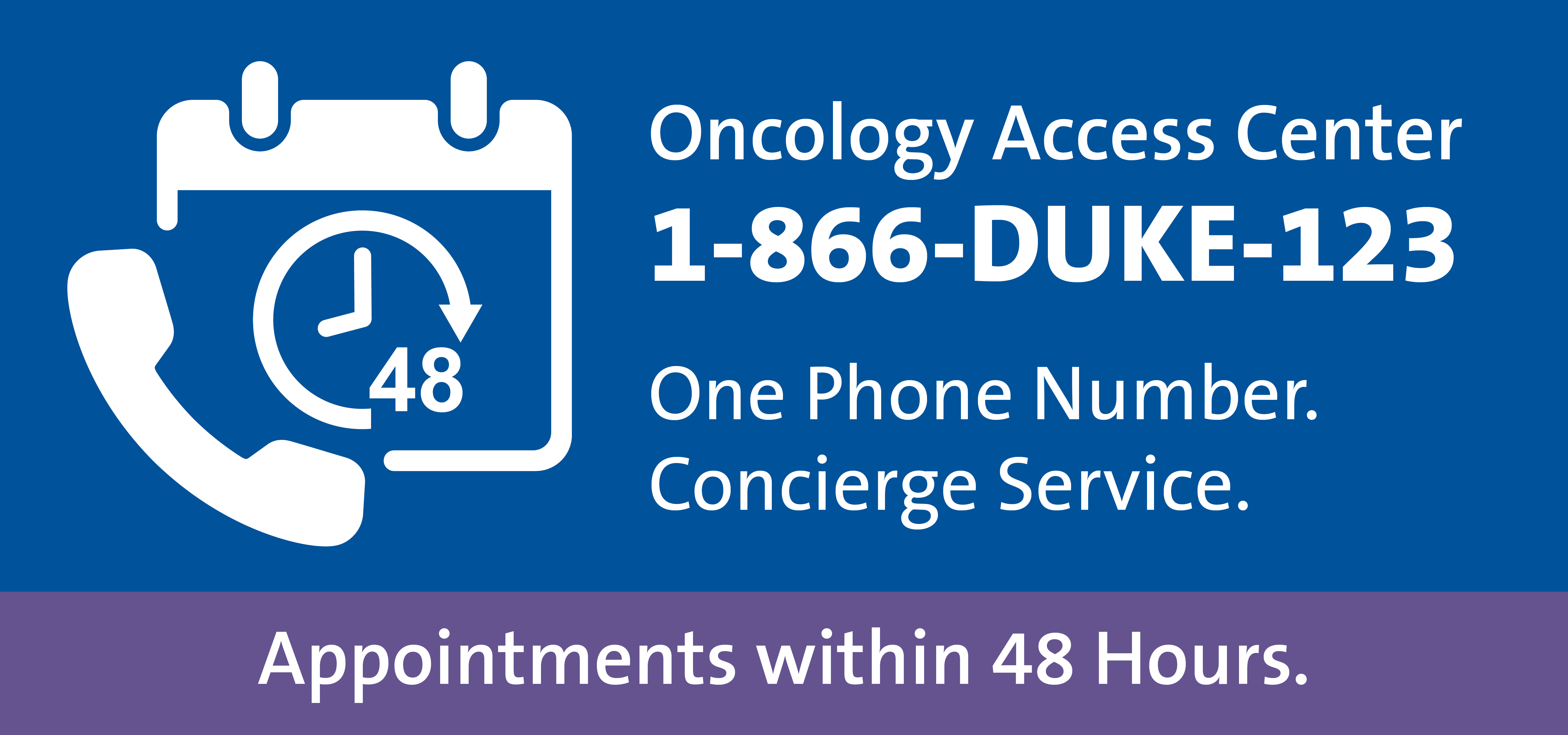Duke Cancer Institute (DCI) Center for Prostate and Urologic Cancers has embraced multidisciplinary care for patients with prostate and urologic cancers for over 20 years. “I’m proud to be a part of building this program from the ground up with medical oncologist Daniel George,” says urologic oncologist Judd W. Moul, MD. “We’ve been one of the first to deliver a team-based care model, which has exponentially grown over the years with more clinicians, novel treatments, and a diverse clinical trial portfolio.”
Multidisciplinary care promotes improved outcomes because urologists, medical oncologists, surgical oncologists, radiation oncologists, and researchers collaborate to develop and deliver a personalized care plan for each patient.

For patient referrals, call the referring provider team Monday through Friday between 8:00 a.m. and 4:30 p.m. at 866-385-3123 (1-866-DUKE-123) or email OncologyReferral@Duke.edu.
Screening innovation
Most patients that Moul treats are first referred with an elevated prostate-specific antigen (PSA) score. “We’ve built relationships with Duke Primary Care colleagues to help PCPs know how to work up an elevated PSA and get patients to the right care,” says Moul.
Duke’s PSA screening algorithm considers patients’ age and family history, among other factors, to triage high-risk patients to a Duke urologist quickly.
“The classic teaching is that a PSA greater than four deserves a urology referral. While valid, we fine-tuned our algorithm to refer men aged 40 or younger with a PSA greater than 2.5. Among elderly men, a score of four or higher is not as alarming and can often be actively monitored,” says Moul.
Cutting-edge treatment
Duke’s multidisciplinary team represents expertise in many of the most innovative treatments for early-stage prostate cancer, including surgery. “Duke has maintained a strong reputation in the surgical management of prostate cancer for over 50 years,” says Moul.
Treatment options now include focal therapy, led by urologic oncologist Cary N. Robertson, MD, and surgical oncologist Thomas J. Polascik, MD. “We are one of the few centers in the Southeast that offers expertise in focal cryotherapy and high-intensity focused ultrasound (HIFU),” says Moul.
In addition, Duke has built a world-class radiation therapy program. Led by radiation oncologist Ryan Fecteau, MD, PhD, the growing team is adding two new radiation oncologists to increase access for more patients. “Every patient with localized prostate cancer is counseled by multiple specialists,” Moul says. “We are all in touch daily to manage patient cases.”
Novel clinical trials are a unique option for many patients with early-stage prostate cancer. One open trial examines a urine biomarker to better risk-stratify and predict which patients should be on active surveillance. Another NIH-funded study is examining whether a nutritional supplement given before a radical proctectomy positively affects the prostate gland.